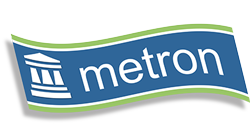Happy
Holidays, Merry Christmas to those who celebrate it, to all our prospects,
clients, partners, suppliers and even our competitors. I hope everyone has a great holiday season
and comes back refreshed to face the New Year.
On
a personal note it has been a fun and challenging year, my first as CEO for
Metron. Overall the economic picture
remains very mixed across both geographical and vertical markets. Some businesses seem to be thriving, some
struggling, within the same territory or area of business. Hopefully next year will be one of success
and growth for everyone as the global economy slowly picks up.
From
a capacity management perspective, the twin technological challenges of Cloud
and Big Data grow ever more important.
Sat here watching the trees get buffeted by the strong winds passing
across the UK at the moment makes me think of the ever-improving job that
weather forecasters seem to do. They
have been pioneers in collating, analyzing and reporting on vast quantities of
data. Their forecasts seem to me to get
more and more accurate in the UK – not easy for a small island in a blustery
sector of the northern hemisphere. As
capacity managers, we can learn a lot from how they sift huge volumes of
technically complex numbers into the concise predictions we see on the TV or
Internet.
Cloud
has brought different challenges, partly due to the lack of control and
visibility we now have into the entities we have to manage. A major factor in helping Metron get to grips
with parts of applications and services we could not previously see has been
our partnership with Correlsense and their SharePath application monitoring
software. The combination of our athene®
software with SharePath has been a real sales success for us this year. The two combined give unparalleled visibility
into where, in a complex processing structure, resources are being consumed and
prediction of what needs to be done to correct those issues and prevent a
recurrence. Now there’s a Christmas
present worth having.
Once
again, thank you to everyone who has worked with Metron over the past
year. We look forward to working with
you again and contributing to your success.
Andrew Smith
CEO
